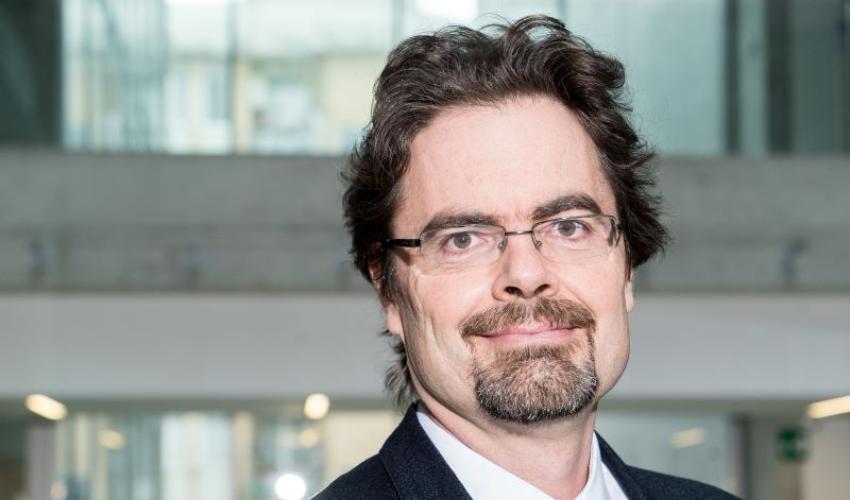
To Bridge or not to Bridge? Maybe We Should Build a Tunnel
THE GOVERNMENT HAS RELAUNCHED THE PROJECT TO BUILD INFRASTRUCTURE THAT CONNECTS SICILY TO THE CONTINENT. BUT, AS OLIVIERO BACCELLI EXPLAINS, THE SOLUTION PROPOSED IS NOT THE MOST MODERN OR SUSTAINABLE, AND HE INVITES US TO LOOK AT THOSE ADOPTED BY NORWAY, DENMARK AND GERMANYby Davide Ripamonti
Translated by Richard Greenslade
It is an undertaking that symbolizes the difficulty in building impressive and demanding public works in our country. We are talking about the bridge over the Strait of Messina, which has been discussed since ancient times and has returned forcefully to the fore with the entry into office of the Meloni government. Repeatedly announced, postponed and shelved, the project may now see work actually begin. It is badly needed, according to many, even if the disagreement on which solution to adopt is very harsh. We talk about it in this interview with Oliviero Baccelli, Director of the Master in Economics and Management of Transport, Infrastructure and Supply Chain at Bocconi University.
What are the obstacles and perplexities around an infrastructure that has been talked about for 50 years?
The subject is very complex. It starts from the high costs (estimated between 6 and 10 billion), to move on to environmental issues since the bridge would impact on an area with very unusual fauna and flora. And then of course there are the geological characteristics of the seabed and the mountainous stretches to be crossed, the strong wind, the currents, the highly urbanized context, both in Calabria and Sicily, as well as the seismic problems. These are all issues that make it difficult to build the single-span bridge that is currently the most popular solution.
A project, it should be remembered, that is quite a few years old. And that some consider obsolete, expensive and ultimately unaffordable. Is this really the case and, if so, why are there no alternatives?
Given that I am pleased that the construction of the bridge is among the priorities, I must also say that the project is dated 2011 and in the meantime technologies have made progress. But it is in effect the only project on which we are already well advanced, for which some preliminary work has already been done and with a consortium of companies ready to go. Let's say that, from an administrative and bureaucratic point of view, it is the most practical solution and with at least three years of advantage compared to the alternatives to be planned in more detail.
What are the alternatives that could be considered?
The bridge that is planned to be built would have a length of about 3.5 kilometers and would be the longest in the world of this type built in recent years. It would be outdated, expensive and oversized compared to traffic expectations that have been estimated, with also high costs for maintenance. I am well aware of the situation in Norway, where numerous underwater tunnels have been built in the fjord area, even very long (16 km) and at great depths (330 meters), which have very little impact on the surrounding environment. These are tunnels that allow only car traffic and not, as required by the legislation for crossing the Strait, also the railway, but this is in my opinion the path to which we must look.
One option some are looking at is the underwater tunnel, the Fehmarnbelt, which will unite Germany with Denmark. What do you think?
It is a very long work, 18 km, which will allow both car and rail passage, made, if you will allow me the term, in a frugal way, very simple and with little impact, which also takes its cue from the evolution of offshore wind farms. And it would also be ideal for the Strait of Messina. In practice, Messina and Reggio Calabria could be connected with a tunnel that rests on pylons between 25 and 60 meters high below sea level. This would solve the problems of navigation in the strait, a stretch of sea crossed by huge cargo and cruise ships which, if the single-span bridge were built, but also with three spans, would have to be taken into account. In addition, the construction of new shipyards would also be avoided, because the semi-submerged parts could be built elsewhere, where the port areas for the shipyards would be less impactful, and brought to the site at the last moment. It is a solution that has already been hypothesized, as well as others, but, as I said before, they are much further behind the single-span bridge project.
In the end, are those who do not want the bridge right?
No, not really. The connection between Messina and Reggio Calabria, cities that have been suffering from years of demographic and employment decline, must absolutely be enhanced. Some wonder what the point is in connecting 'poor' transport systems with other 'poor' ones, but in reality, it is a meaningless debate. On the Sicilian railway lines there are many construction sites working on improvements, and even the Salerno-Reggio Calabria highway is now at a good level except for the last few kilometers. We must also consider the opportunities for revitalization of two metropolitan areas, universities, cultural centers, high-level tertiary services, realities that need to connect with those of other cities. Unfortunately, the bridge project under study risks not responding to these needs. In the end, given the distances to be covered and the probable high costs of tolls, it will be cheaper to continue taking hydrofoils.
